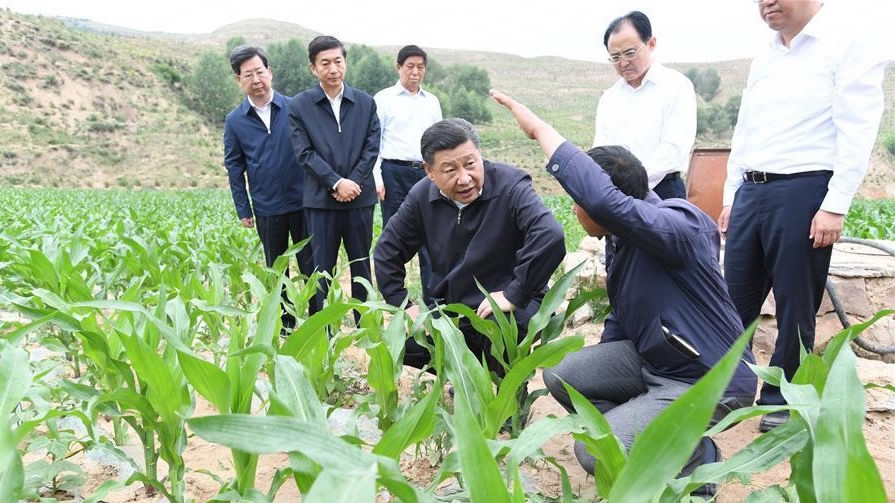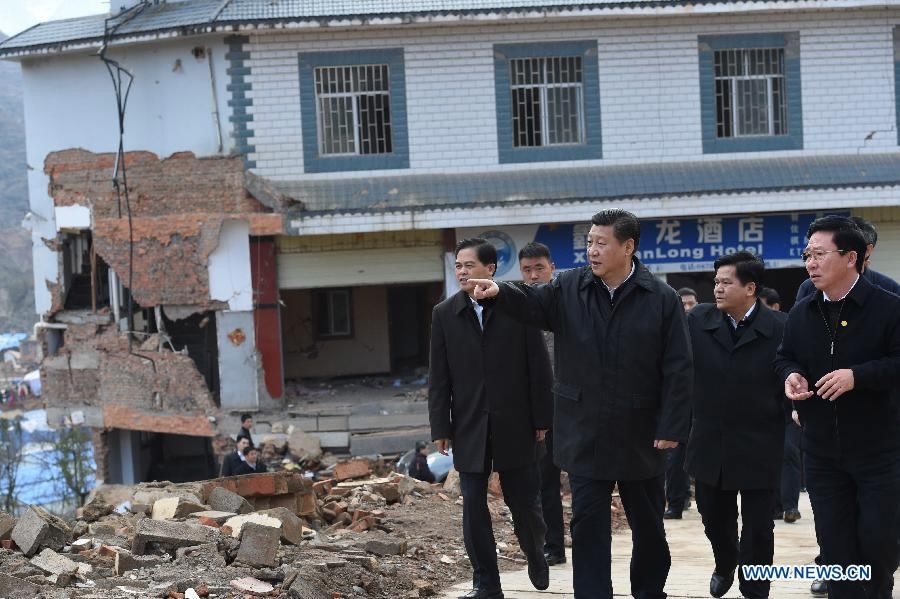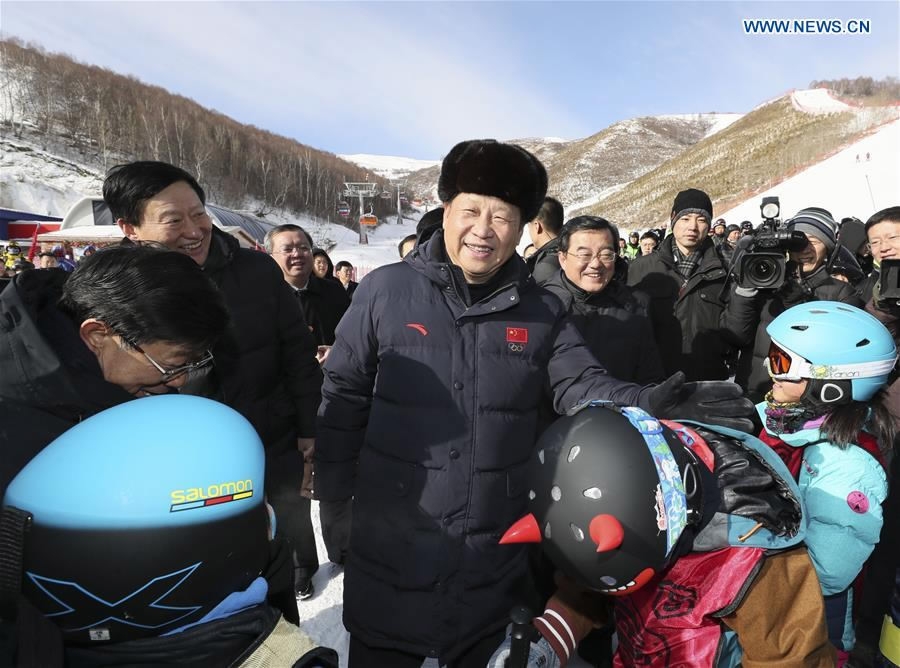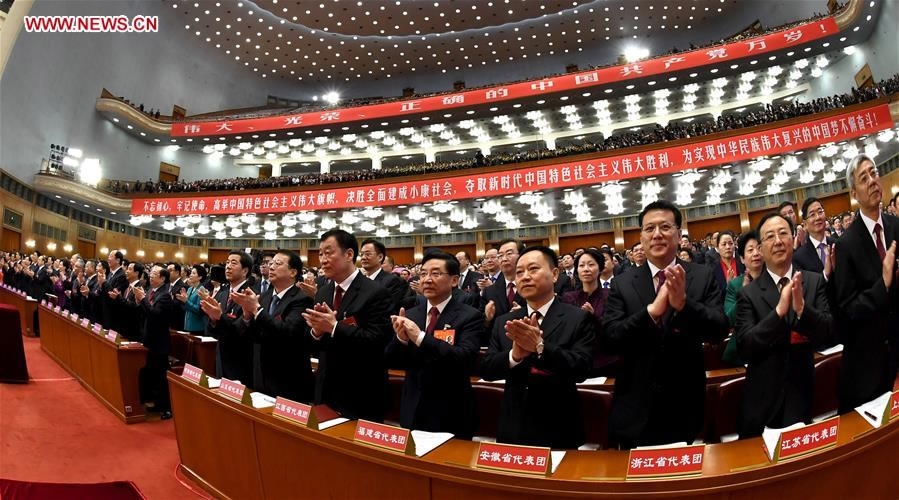
Politics
21:23, 11-Dec-2017
10 practices among Chinese officials that Xi hates
By Wang Lei

Chinese President Xi Jinping, also general secretary of the Communist Party of China (CPC) Central Committee, recently warned Party and government officials against undesirable work styles – formalities for formalities' sake, bureaucratism, hedonism, and extravagance.
In response to a Xinhua article about new forms of misconduct among officials, Xi instructed Party and governmental departments across the country to rectify the problems, especially the work styles that seek excessive publicity but lack solid practice and implementation. He called the so-called new forms of misconduct "old problems" in their nature.

January 19, 2015: Chinese President Xi Jinping (L2, front) inspects the town of Longtoushan in Ludian County after a 6.5-magnitude earthquake in August 2014, in southwest China's Yunnan Province. /Xinhua Photo
January 19, 2015: Chinese President Xi Jinping (L2, front) inspects the town of Longtoushan in Ludian County after a 6.5-magnitude earthquake in August 2014, in southwest China's Yunnan Province. /Xinhua Photo
What are the problems that made Xi angry? The Xinhua article listed 10:
1. Some officials conduct perfunctory work in their research and inspections;
2. Some Party and governmental agencies and their workers show false concern to the public without doing practical work to serve the people;
3. Some local governments work for the attention of higher officials, rather than for the people's satisfaction;
4. Some Party and governmental agencies hold similar meetings repeatedly with few efforts of implementation;
5. Some local governments write materials and make documents and rules by copying others;

January 23, 2017: Chinese President Xi Jinping encourages children to attend ski winter camps at Genting Ski Resort during his inspection for the preparatory work of Beijing 2022 Winter Olympic Games in Zhangjiakou, north China's Hebei Province. /Xinhua Photo
January 23, 2017: Chinese President Xi Jinping encourages children to attend ski winter camps at Genting Ski Resort during his inspection for the preparatory work of Beijing 2022 Winter Olympic Games in Zhangjiakou, north China's Hebei Province. /Xinhua Photo
6. Cases of inaction and sloth are found among some officials, who dodge responsibilities and expect higher officials to do their job;
7. Some local governments attach too much importance to the appearance of their work but too little to its actual effect;
8. Some leading officials dodge responsibilities and ask their subordinates to do their job;
9. Some officials do not report what they know, and just sit back and watch as things worsen;
10. Some officials are known for their double-dealing and duplicity under different circumstances.
"The efforts to address such misconduct should not be stopped and the work to improve the Party's conduct and work styles should never end," Xi said, asking leading officials at all levels to take the lead in the campaign.

The Communist Party of China (CPC) opens the 19th National Congress at the Great Hall of the People in Beijing, October 18, 2017. /Xinhua Photo
The Communist Party of China (CPC) opens the 19th National Congress at the Great Hall of the People in Beijing, October 18, 2017. /Xinhua Photo
Fighting undesirable work styles is part of the CPC's efforts to improve Party conduct and enforce Party discipline.
"Our Party comes from the people, has its roots among the people, and is dedicated to serving the people," Xi stressed in his report to the 19th CPC National Congress in October. "Once the Party becomes disengaged from the people, it will lose its vitality."
He called on CPC officials to "earnestly address all issues the people are strongly concerned about, and resolutely correct any behavior that undermines the people's interests."
In this sense, Xi was asking officials to take their work and the people more seriously in his latest instruction.
(Top photo: Chinese President Xi Jinping (C) checks on the growth of corns in Zhaojiawa Village of Kelan County in Xinzhou City, north China's Shanxi Province, June 21, 2017. /Xinhua Photo)

SITEMAP
Copyright © 2018 CGTN. Beijing ICP prepared NO.16065310-3
Copyright © 2018 CGTN. Beijing ICP prepared NO.16065310-3